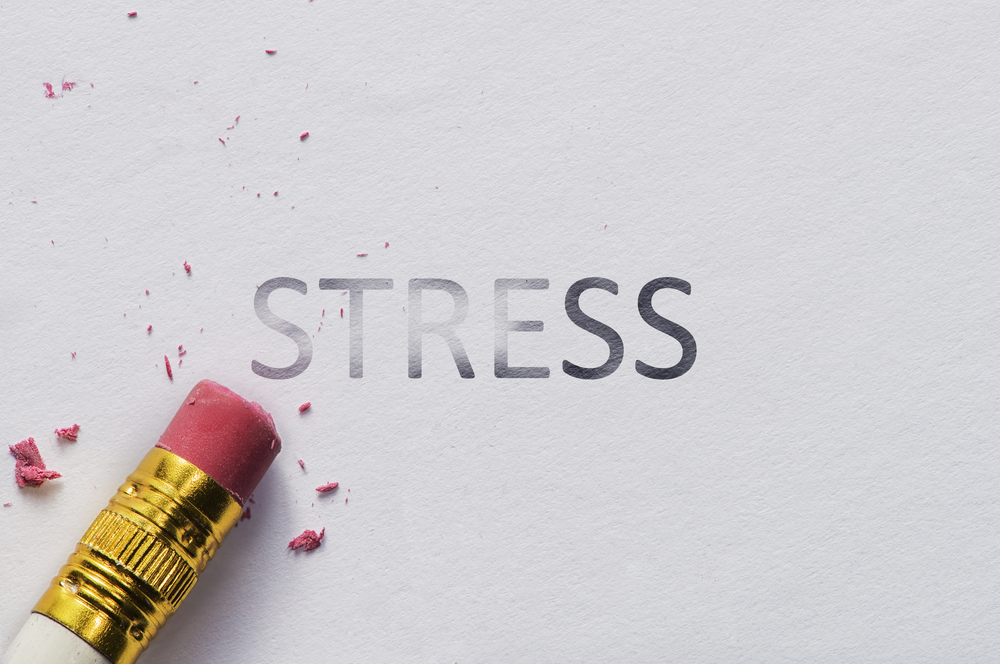Stress can have a detrimental effect on all aspects of our lives. Whether it is our physical and mental well-being, or our relationship with friends and family – feeling stressed can cause serious problems. Knowing how to handle stress and avoid getting into stressful situations can be a huge help in finding your way to becoming more relaxed. Mr Lender has put together a guide on ways you can begin to combat stress.

Identify the source
The first step when trying to combat stress is to identify the source. If the root cause of your stress is a particular task at work or job which needs to be done, ask for help from people who will be able to take some of the stress away from you – such as your manager or a colleague.
If it’s a particular person who is causing you stress, take a step back and decide how important they are to you. If they are someone who doesn’t play a particularly vital role in your life, you may be better off removing them from it. If someone close to you is causing you stress, it is important for you to talk to them and explain how you’re feeling. When trying to deal with stress, it is important to surround yourself with positive people who are not going to add to your stress.
Talk it out
When trying to combat stress, there are few things worse than bottling up your emotions. One of the easiest ways to work through stress is to talk it out with someone. Not only will that person then be able to help you decide which steps need to be taken to relieve the stress in your life, but you may even find that some situations aren’t too much of an issue after all once you’ve said it out loud.
Take time out
If you find the cause of your stress is work, or a hectic lifestyle – or even a combination of both – you should try and take some time out for yourself. It is important to recharge your batteries every so often, and to get back in tune with your own body if you want to combat stress. Spending time doing something you enjoy is a guaranteed way to help you relax and relieve stress. If you don’t already have a hobby, maybe do a little research and find something you know you will enjoy doing in your spare time.

Avoid unhealthy habits
To try and combat stress it is important that you not only look after your mind, but your body too. Trying to combat stress by smoking, drinking alcohol and indulging in caffeine fuelled drinks and snacks, isn’t only not going to work, but it’s very unhealthy for your body too. Research has shown that to combat stress, your diet should be healthy and you should be exercising regularly. Doing regular exercise isn’t going to make your stress disappear, but it will help take your mind off things and it will help to relieve some, if not all, of the symptoms of stress.
Help others
Occupational Health Expert at the University of Lancaster, Professor Cary Cooper, says evidence shows helping others is likely to make you more resilient and less likely to give in to stress. One way to combat stress is to volunteer or do some community work. If you find that you simply do not have time to volunteer, you could always help others with small acts of kindness throughout the day. This could be stopping by an elderly neighbour’s house on your way home to make sure they’re okay, or helping a parent get their pushchair up a flight of stairs.
Reorganise your workload
If work is the root cause of your stress, take a step back and see if there is anything you can do to change it. If, for example, the workload is too much, you could take a little time to prioritise it based on what needs to be completed urgently and what can wait a little longer. When trying to combat stress, it is important that you focus on the task at hand as opposed to the bigger picture. Thinking about one task at a time will make the workload seem far more manageable.
Accept the things you can’t change
When trying to combat stress, think about what you can actually change and control. Think about the steps you can take to relieve some of that stress. If there is anything stressing you out which you have no control over, think about the things you can control instead. One example of this would be finding out that the company you work for is closing down and making staff redundant. In this situation, the fact that you will be made redundant could be stressing you out, but it’s an inevitable change which you have no control over. Instead, think about what you can do to begin combating the stress – for example, start to look for a new job.

Get plenty of sleep
Research has proven that getting plenty of sleep is a great way to begin relieving stress. Most people require eight hours of sleep per night, but this does vary from person to person. If you feel that you in fact need 10 hours, then that is what you should allow yourself. When you’re under stress, you may find it difficult to fall asleep, or to get a fully uninterrupted sleep. There are a few tips and tricks you can try, such as placing a warm flannel over your eyes, reading before you go to sleep and avoiding drinking caffeinated drinks or eating before you go to sleep.
Tune into your body
Stress can take its toll on the body – both mentally and physically. One way to relieve some of the symptoms of stress is to take some time to tune into your body. Find some time to relax at the start and end of your day, and follow these simple steps:
- Begin by getting yourself comfortable – whether it’s sitting in a chair or laying down flat, the choice is yours
- Close your eyes and take slow, deep breaths
- Starting at your toes and working up to your scalp, focus on your body and take note of how your body feels. Do you ache anywhere? Does any part of you feel particularly tense?
- Continue taking deep breaths and imagine each breath working its way around your body
- Carry on this way for a few minutes, then begin to slowly open your eyes and, if you’re laying down, slowly start to sit up

